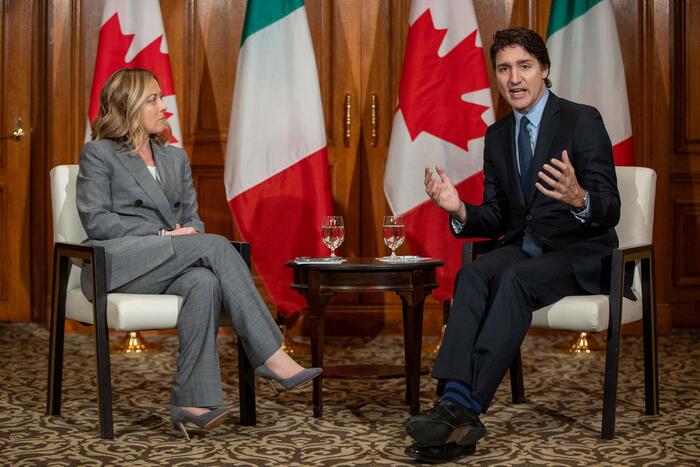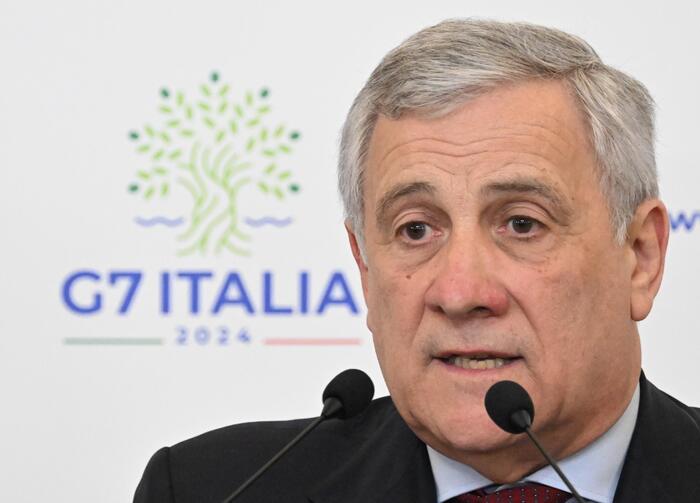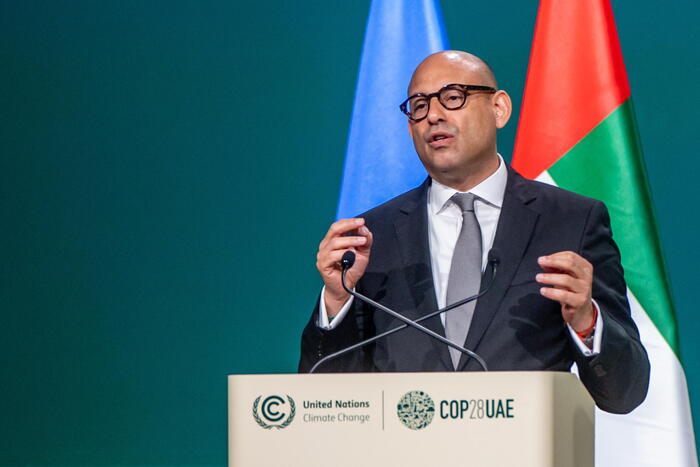Dear readers,
if the magnitude of climate change progress was proportional to the number of meetings of powerful people, this week would undoubtedly have been a good climate week.
At the beginning of the week, state leaders, business thinkers and company bosses met in Davos for the World Economic Forum, and in Berlin until Friday, representatives of the G7 discussed the climate, energy and environmental policies of the seven leading industrial nations.
At both meetings, the participants often pointed out the importance of consistent, concrete climate protection measures.
more on the subject
Instead of climate protection, greed for fossil fuels rules: Greta who? Claus Hecking and Gerald Traufetter report from Davos
In Switzerland, Chancellor Olaf Scholz spoke of "now more than ever" and announced that he would pursue the climate goals with even more determination.
Fatih Birol, head of the International Energy Agency, described the energy crisis caused by the Russian war of aggression as a possible "tipping point for states to change their energy policies."
In Berlin, Federal Environment Minister Steffi Lemke described the G7 meeting as a success, which placed a clear emphasis on the topics of climate protection, protection of biological diversity and commitment to combating plastic pollution.
And Federal Minister of Economics Robert Habeck held out the prospect of “decisive political action in the coming years”.
Because: »What we do is not enough.«
Germany's climate minister hits the nail on the head.
Vague promises must be followed by concrete consequences
What the international community has done so far is indeed not enough.
Much of what she plans, announces, promises and repeats like a mantra is to be welcomed - but only if it is actually implemented.
When concrete consequences follow vague promises.
Both Habeck and Lemke said that the rich countries of the G7 bear a special responsibility.
They consumed a large part of the world's resources and at the same time had the opportunity to significantly advance the transformation with technology, with money, with political determination.
In a final communiqué, the G7 states summarized how they intend to fulfill their pioneering role.
It states, for example, that the most important industrial nations committed themselves for the first time to the goal of a predominantly decarbonized electricity supply by 2035 – but what does “predominantly” mean?
The G7 commit to ending direct international public financing of fossil fuels by the end of 2022, with a few exceptions in limited cases.
States reaffirm their commitment to end “inefficient” fossil fuel subsidies by 2025 – so should subsidies for “efficient” fossil fuels continue to be approved and implemented?
And for the first time, the seven largest industrialized countries in the world have agreed on an end to climate-damaging coal-fired power plants - only without an end date.
"Everything is still a bit spongy"
The final paper is nice and the inventory is very good, said Volker Quaschning, Professor for Regenerative Energy Systems at the Berlin University of Applied Sciences, after the final conference on Friday in Phoenix.
"If then not only paper is printed, but actions are actually triggered, then this conference has been successful." So far, the scientist continued, "everything is still a bit vague".
Claudia Kemfert, Professor of Energy Economics and Head of the Energy, Transport and Environment Department at the German Institute for Economic Research, also said on Twitter that the plans of the G7 sound good – but so far they have been “lip service, words must be quickly followed by real action”. .
And that's exactly the problem.
In January, scientists from the World Economic Forum published a report on the greatest dangers facing the world, the "Global Risks Report 2022".
The experts identified »Climate Action Failure«, a failure of climate policy, as the greatest danger in the next ten years.
If you like, we will inform you once a week about the most important things about the climate crisis - stories, research results and the latest developments on the biggest issue of our time. You can subscribe to the newsletter here.
The topics of the week
G7 meeting on climate: the big bluff
Five months before the UN climate conference, the G7 are discussing the green transformation.
Financial promises have already been toned down.
This endangers the energy transition and could turn poorer countries against the West.
Instead of climate protection, the greed for fossil energy rules: Greta who?
In Davos, climate protection has been a central topic in recent years.
But in view of the energy crisis, states and corporations are scrambling for Saudi oil, Qatari gas and Colombian coal.
The multinationals cash in.
Evaluation of satellite images: Rainforest destruction on Brazil's east coast is increasing drastically
In just twelve months, 20,000 hectares of forest have been lost in the Mata Atlântica, reports an environmental organization.
In contrast to the Amazon, the area has so far been less affected by deforestation.
Better living in the city: "Drawing a park somewhere in the plans is not enough"
Heat, heavy rain, people seeking refuge - German cities are poorly prepared for crises.
Antje Stokman, professor of landscape planning, calls for more radical and flexible thinking in urban planning.
Jamestown Cemetery: The Cradle of the USA Drowns
Jamestown was the first permanent English settlement in North America.
Today the sea level rises above the historical heritage.
The archaeological work behind sandbags and with wet bones becomes difficult.
Eurostat report: EU loses biodiversity
Birds and butterflies are dwindling because the EU is poorly protecting their nature.
Germany is also under criticism: Cem Özdemir's Ministry of Agriculture has to revise its strategic plan for EU subsidies.
India and Pakistan: climate change makes heat waves 30 times more likely
In Pakistan, one of the largest pine forests on earth is burning.
The extreme heat in South Asia is attributed to climate change.
A specialist team has now checked the theory.
Change of government Down Under: What the Australian election means for the world and the climate
Anthony Albanese, the new Prime Minister, promises to make his country the “superpower of renewables” – without saying goodbye to coal.
How is this supposed to work?
Difficult transformation in heavy industry: Green steel baroness
Anne-Marie Großmann wants to convert her steelworks in Georgsmarienhütte into a climate-neutral pioneering site.
To do this, you need green electricity.
But there is hardly any space for wind turbines - species protection.
Climate researcher Latif on ways out of the crisis: "You don't bet on the future"
When it comes to the climate, it's "five past twelve," says meteorologist Mojib Latif.
There is neither a lack of money nor solutions.
The researcher has an idea of how politicians can implement unpopular measures immediately.
»Climate Report« podcast: Why we have to fight fire with fire
More and more regions of the world are suffering from extreme forest fires.
The global warming heats them up additionally.
Firefighting is reaching its limit - but an old idea could help.
Climate activist Hania Imran: "I'm fighting nausea and vomiting in this boiling heat"
The climate crisis is hitting few countries as hard as Pakistan.
Here Hania Imran talks about life in temperatures of more than 50 degrees - and says what she expects from politicians around the world.
Forest fires in Russia: who will put out the flames in Siberia?
Usually, the Russian military helps to contain forest fires.
But now there are reports that soldiers are missing in Siberia.
What to make of it - and how dangerous the fires are for the climate.
stay confident
Your viola keel









